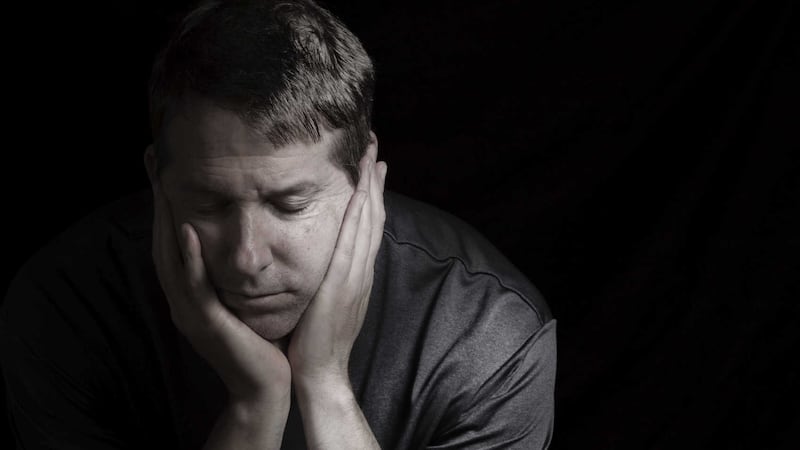ALL I could say was: “Everything is black.” I repeated it two or three times: “Everything is so black.”
I was crying. Almost imperceptibly, except for the physical feeling. My eyes wet. My throat swollen.
My breathing unsettled. But there was no noise. I wasn’t sobbing.
The other person just listened. There were long moments of silence. Maybe a minute of unspoken emptiness at one stage.
It was a stranger who had answered the Samaritans phone-line that afternoon. They weren’t there with me.
They didn’t know my story. I talked in abstract. They just listened, in an office somewhere. And that was enough.
I had pulled into a car park, by the water. I’d never previously been at that spot. It was just opportune.
But I had been in this ‘place’ once before in my life. In fact, I had noticed the signposts and it scared me. It was the pathway to the darkest corner of consciousness.
It’s a place that many people never go, thankfully. But it means they can never really know what it’s like. Not really.
They can, at best, only imagine and empathise. For anyone who’s been there, it looks like a bottomless cliff-edge to your very existence.
Perspective became distorted. Reality was bent, as if in a hall of mirrors. Light became dark. Love seemed lost. Life felt unfixable.
I had already driven around for a couple of hours that day. I’d left the house because the precise clarity of my thoughts terrified me.
And I think then, looking back, I actually became afraid to stop driving. I had just two choices (or so it felt at that moment). Make a phone call, or make a mistake.
Earlier that day, I had spoken to one of my oldest friends. We talked general chit-chat. He knew something was wrong.
Maybe that chat bought more time inside my head. He said: “Are you ok?” I said: “I just needed to talk.”
I should have been more honest. But I was supposed to be holding it all together.
I was supposed to be strong, steady and tough enough to manage all this. At my age? Isn’t that how it’s meant to work?
Phoning the Samaritans was one of the hardest things I’d ever done. I’d looked at their website for ages and found a number.
I always carried one of their wee cards – ironically enough though, to give to others.
That day, my phone became a life belt. I had been slowly drowning for months. I didn’t want to bother loved ones any more.
Without the internet and that local number – it had to be local – I might have sunk.
Dialling that number, my hands were shaking. Me, seriously? I couldn’t hold my phone without shaking?
But that’s what unmanaged stress can do to you. It shows itself in ways that contradict your very being.
There was no magic solution when the phone call was ending. Only a reminder that I could call back any time.
And that there were also good things in life; that there is always colour somewhere. I’d opened the pressure valve.
I never phoned the Samaritans again.
And so - a whole lifetime later, in a very different phase of my journey–I’m recalling that small experience during Men’s Health Week in the hope that others can listen and learn.
Life continued imperfectly. But my soul settled. When people ask me how I’m doing these days, I usually reply: “Wonderful!” And it’s true.
Because I’m able to say that there is always a future, always another day, another chance; and I understand that the word ‘wonderful’ actually has meaning.
Life is tough and unfair, and often incomprehensibly nasty. And sometimes the stresses rising around us can suffocate hopes and smother dreams, making us feel impossibly small.
We need to remember that unquestioning love – whether of family and friends, or of stranger samaritans - is only ever a phone call away, if we reach out.
Their listening can offer a lighthouse in any storm, guiding a way through the rockiest periods.
Talking is always the bravest thing to do. Accepting vulnerability demonstrates actual strength. True courage rests in facing our own faulty humanity, and asking others for a helping hand along the way.
We’ll ask others for a lift, or lend, or work. So why shouldn’t we occasionally ask for help with our feelings too?
Last week, I sat with my youngest daughter, overcome with pride at her imminent graduation.
Beside us sat one of my best friends, a man who is now 90. We laughed as he told stories until our bellies were sore and the three of us were rolling in tears.
It was wonderful.
j.kearney@irishnews.com
:: If you or someone you know is in distress, you can call the Samaritans on 116123 or Lifeline on 0808 808 8000








